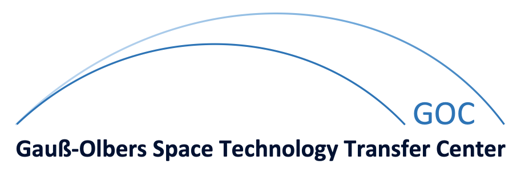Compressive Sensing Multi-User Detection for Code-Multiplex Systems (CoSem)
Objectives:
- Application of Compressive Sensing for multi-user data detection in a code-multiplex transmission
- Exploiting the inactivity of most users in order to use spreading factors much shorter than the number of users
- Combination of this detection and channel coding for improved performance
- Determine how a channel code can handle non perfect activity estimation
- Investigate how a feedback of information from the channel code to the detector can improve the overall performance
Detailed Description:
In recent years Compressive Sensing has developed into an important topic in signal detection and is currently the subject of various research projects. Compressive Sensing originated from the processing of images or speech. Now it is also being investigated in information theory and is gaining more and more interest in the areas of communication technology and mobile communication.
The focus of this research project is the application of Compressive Sensing for detection of multi-user signals in a code-multiplex transmission, which for example is used in the mobile radio system UMTS. Therefore, a primary goal is the development and investigation of algorithms for multi-user detection that are based on Compressive Sending. More specifically, the combination of Compressive Sensing detection and channel coding is of major interest. Among other goals, concepts for iterative detection should be developed and investigated. Additionally, a goal is the evaluation of Compressive Sensing detection for mobile radio channels. In this context, we especially analyze the performance of Compressive Sensing detection for a Code-Division-Multiplex transmission with spreading factors significantly below the number of users. Here, the Compressive Sensing detection exploits the fact that the not all users are active during the transmission at a given time.
In summary, the results of this project will give an extensive understanding as to whether Compressive Sensing detection can be applied for code-multiplex transmission in mobile radio systems. Finally, it should be noted that the results of this project will also give an indication for other transmission scenarios, such as a transmission using multiple antennas with a selective choice of antennas.
Details
| Duration: | 11/2011 - 06/2016 |
| Funding: | German Research Foundation |
| Research Focus: | Compressive Sensing in Wireless Communications |
Publications
-
Multi-Carrier Compressed Sensing Multi-User Detection System: A Practical Verification
BibTEX

M. Woltering, F. Monsees, C. Bockelmann, A. Dekorsy
19th International Conference on OFDM and Frequency Domain Techniques (ICOF 2016), Essen, Germany, 25. - 26. August 2016 -
Efficient Detector for Joint Compressed Sensing Detection and Channel Decoding
BibTEX
H. Schepker, C. Bockelmann, A. Dekorsy
IEEE Transactions on Communications, Vol. 63, No. 6, pp. 2249-2260, April 2015 -
C-Curve: A Finite Alphabet based Parameter Choice Rule for Elastic-Net in Sporadic Communication
BibTEX
H. Schepker, C. Bockelmann, A. Dekorsy, A. Bartels, D. Trede, K.S. Kazimierski
IEEE, IEEE Communications Letters, Vol. 18, No. 8, pp. 1443 - 1446, August 2014 -
Improving Greedy Compressive Sensing Based Multi-User Detection with Iterative Feedback
BibTEX

H. Schepker, C. Bockelmann, A. Dekorsy
2013 IEEE 78th Vehicular Technology Conference (VTC2013-Fall), Las Vegas, USA, 2. - 5. September 2013 -
Exploiting Sparsity in Channel and Data Estimation for Sporadic Multi-User Communication
BibTEX

H. Schepker, C. Bockelmann, A. Dekorsy
10th International Symposium on Wireless Communication Systems (ISWCS 13), Ilmenau, Germany, 27. - 30. August 2013 -
Coping with CDMA Asynchronicity in Compressive Sensing Multi-User Detection
BibTEX

H. Schepker, C. Bockelmann, A. Dekorsy
2013 IEEE 77th Vehicular Technology Conference: VTC2013-Spring, Dresden, Germany, 2. - 5. June 2013 -
Compressive Sensing based Multi-User Detection for Machine-to-Machine Communication
BibTEX

C. Bockelmann, H. Schepker, A. Dekorsy
Transactions on Emerging Telecommunications Technologies: Special Issue on Machine-to-Machine: An emerging communication paradigm, Vol. 24, No. 4, pp. 389-400, June 2013 -
Compressive Sensing Multi-User Detection with Block-Wise Orthogonal Least Squares
BibTEX

H. Schepker, A. Dekorsy
2012 IEEE 75th Vehicular Technology Conference: VTC2012-Spring, Yokohama, Japan, 6. - 9. May 2012 -
Sparse Multi-User Detection for CDMA Transmission using Greedy Algorithms
BibTEX

H. Schepker, A. Dekorsy
8th International Symposium on Wireless Communication Systems (ISWCS 11), Aachen, Germany, 6. - 9. November 2011







